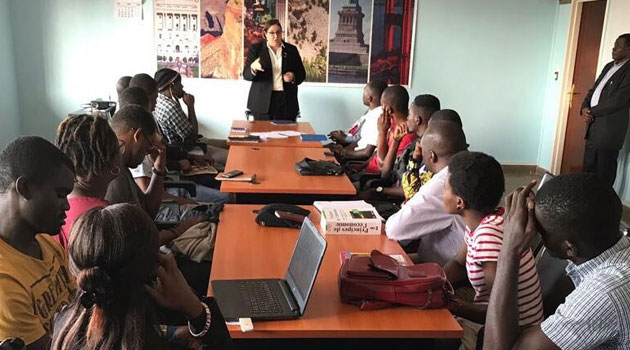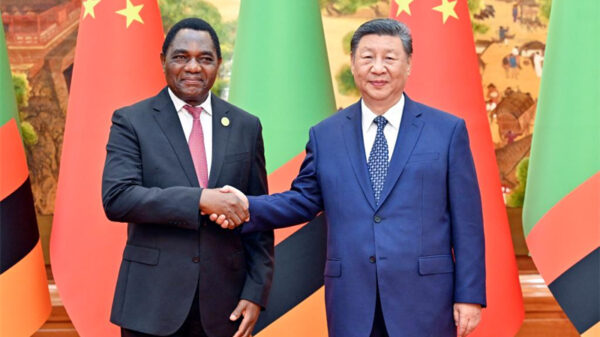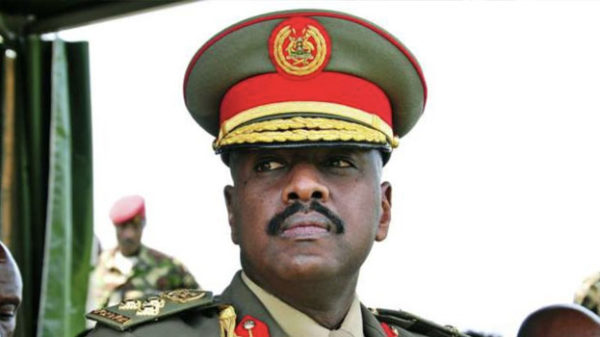
US Deputy Assistant Secretary of State for the Bureau of International Narcotics and Law Enforcement Affairs, Heather Merritt/COURTESY
NAIROBI, Kenya, May 23 – The United States is urging countries in East African region to strengthen their financial monitoring regimes in order to deter South Sudanese leaders involved in ceasefire violations from investing their ill-acquired wealth in the region.
US Deputy Assistant Secretary of State for the Bureau of International Narcotics and Law Enforcement Affairs, Heather Merritt, told Capital FM News during a telephonic interview on Thursday monitoring financial transactions in the banking system remained critical to tackling money laundering.
“This will happen if you have a strong anti-money laundering regime, if you have in place adequate measures in your banking system so that bankers are able to report suspicious transactions appropriately to national authorities, and investigators are empowered to trace what is happening with these monies,” Merritt said.
She also urged States in the region to strengthen the capacity of investigative agencies saying the United States was working closely with Kenyan authorities on capacity building.
“The key is empowered institutions, counter-terror finance laws that meet or exceed international standards, and appropriate training for both investigators and courts,” the diplomat pointed out.
The US has in the recent past slapped sanctions on individuals said profiting from war in South Sudan the latest being an ex-Israel military General, Yisrael Ziv, who was last December accused of concealing the selling of arms worth $150 million to warring factions in Juba.
Washington in March last year imposed similar sanctions on fifteen South Sudanese oil operators in a bid to pile pressure on President Salva Kiir to commit to a revitalized peace accord mediated by the Intergovernmental Authority on Development (IGAD).
US Under Secretary of the Treasury for Terrorism and Financial Intelligence, Sigal Mandelker, announced additional measures in June saying Washington would cut off access to its financial system for “those who profit from human rights violations and corruption, preying on the poor and innocent and mothers and children.”
Mandelker warned countries in the region against allowing South Sudan leaders to invest ill-acquired monies in their respective countries while calling for freezing of assets that are believed to be proceeds of war in Juba.
Foreign Affairs Cabinet Secretary Monica Juma had said the Kenyan government was considering all available options in ongoing efforts to restore peace in South Sudan including freezing assets of leaders violating cease fire agreements.
“The matter of sanctions is governed by the rule of law. When there are claims of people who have violated cease fires, we’re insisting on verification and evidence so that we process these in a rule-based manner,” Juma stated at the time.
A Revitalized Agreement on the Resolution of the Conflict in the Republic of South Sudan (R-ARCSS) signed in Addis Ababa on September 12 last year had envisaged an eight-month pre-transitional period for a unity government in an elaborate timeline to restore stability in Juba.
Kiir’s former Vice President Riek Machar’s however failed to return in Juba for the activation of the pre-transitional period citing security concerns compelling parties to vote for a six-month extension.
A joint communique released by IGAD on May 3 after parties to the R-ARCSS convened indicated an extension had been agreed on to allow “the execution of critical pending tasks,” including security concerns raised by Machar which Kiir’s administration has repeatedly assured have been addressed.
“The outcome of the meeting includes the agreement in principle for extension of the Pre-Transitional Period for six months to be tabled for consideration at the upcoming 67th Extraordinary Session of the IGAD Council of Ministers that will be held on 7th to 8th May in Juba, South Sudan,” an IGAD communiqué released on May 3 read.
The joint statement singled out delayed unification of government forces (Sudan People’s Liberation Army) and those allied to Machar (Sudan People’s Liberation Army-In Opposition) as a major hurdle in the implementation of the Addis Ababa peace agreement.
“The Parties observed that key Pre-Transitional tasks that are critical for the formation of the Revitalized Government of National Unity such as the cantonment, screening, training, unification and deployment of forces and the determination of the number and boundaries of state are pending.”
An IGAD Council of ministers meeting in Juba early in May endorsed the extension with Kenya warning against a further delay to the implementation of R-ARCSS.
Kenya urged parties to stick to timelines and targets.
“The 6-month window must not be misconstrued as a window for renegotiation of any aspects of the peace agreement in its letter and spirit but must rather be seen as a logistical opportunity to get our act together on the pending implementation milestones,” Foreign Affairs Chief Administrative Secretary, Ababu Namwamba, remarked.
































